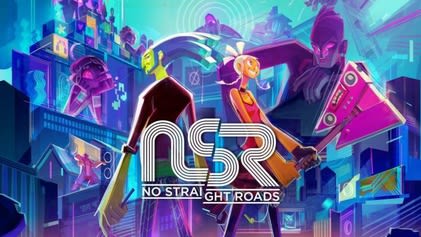Made in Malaysia: How Local Video Games Are Leveling Up the Industry

The Malaysian video game industry is having a moment, and it’s only getting bigger.
From indie success stories to AAA-level global recognition, homegrown games are proving that Malaysia isn’t just a market for games; it’s a serious creator of them. And with the highly anticipated Upin & Ipin videogame just around the corner, all eyes are on what’s next for local developers.
Upin & Ipin Are Powering Up
Slated for release soon, the Upin & Ipin videogame brings the beloved Malaysian animated twins into the gaming world. While details are still under wraps, fans can expect a family-friendly adventure packed with the charm and humour that made the animated series a household name.
But this isn’t Malaysia’s first foray into gaming. In fact, the local video game development scene has been quietly booming, and now it's ready for the spotlight.
Malaysia’s gaming journey began in the 1990s, notably in 1994 when the Malaysian studio Motion Pixel collaborated with LucasArts and JVC on Ghoul Patrol, contributing key development work to this internationally published title. While LucasArts led the project, Motion Pixel’s involvement marked Malaysia’s serious entry into game development.
The late 1990s and early 2000s saw foundational growth with companies like Imaginative Illusions and a surge in MMO and flash games that reached global audiences. The establishment of MDEC in 1996 provided crucial government support that nurtured the industry’s expansion.
By 2010, a vibrant indie game boom took hold, with studios such as Metronomik rising to prominence. The 2020s ushered in AAA collaborations, including Sony Interactive Entertainment’s Southeast Asia studio based in Malaysia, elevating local talent to international standards. Now in 2025, with the upcoming launch of the Upin & Ipin videogame, Malaysia is poised to further cement its reputation as a serious game creator, supported by a rapidly growing market forecasted to expand at over 9% annually.
Malaysian-Made Games That Turned Heads
No Straight Roads (NSR)
Developed by Metronomik, this music-driven action-adventure game was released in 2020 and received international praise for its style, soundtrack and creativity. The studio, co-founded by ex-Final Fantasy developer Wan Hazmer, put Malaysian storytelling and flair on the global map.
GigaBash
Created by Passion Republic Games, this kaiju-inspired brawler lets players take control of giant monsters and duke it out in destructible cities. GigaBash was featured on international gaming platforms like PlayStation and Steam—and it’s proudly made in Malaysia.
Simulacra
This eerie smartphone-based horror game by Kaigan Games found success globally, praised for its immersive storytelling and innovative mechanics. It’s a prime example of how Malaysian indie studios are pushing boundaries in interactive narrative design.
Larian Studios – The Global Giant with Local Roots
While Larian Studios is based in Belgium, best known for the mega-hit Baldur’s Gate 3, it has a major development office right here in Puchong, Selangor. The studio’s Malaysian team played a key role in bringing the award-winning RPG to life, showcasing just how integrated Malaysian talent is in the global gaming ecosystem.
Why Malaysia’s Game Industry Is Booming
Several factors are contributing to the rise of the Malaysian game development scene:
- Skilled talent pool trained in 3D art, animation, coding and interactive storytelling.
- Government support through initiatives like MDEC’s Digital Content Grant.
- Cultural appeal of Southeast Asian stories told through games.
- Studios collaborating across borders, blending international standards with local creativity.
Malaysia is no longer just outsourcing for larger studios—it’s building its own IPs and game franchises.
Building the Next Generation of Game Developers at UNIMY
If you're passionate about gaming, UNIMY's Game Development programmes offer a solid launchpad to turn your interest into a career.
As part of the School of Creative Multimedia, UNIMY equips students with in-demand skills such as:
- Game design & development
- 3D modeling & animation
- Interactive storytelling
- UI/UX design for games
- Game engine proficiency (Unity, Unreal Engine)
Students also gain real-world experience through industry collaborations, project-based learning and a curriculum designed to meet the demands of a growing global market.
Whether you dream of building the next Upin & Ipin hit or launching a global indie success like Simulacra, UNIMY provides the foundation to make it happen.
Final Thought: Malaysia, Game On!
With projects like the Upin & Ipin game coming soon and local studios like Metronomik, Passion Republic and Kaigan Games making international waves, the future is bright for Malaysian game development.
And with institutions like UNIMY training the next wave of digital creators, Malaysia’s place in the global gaming industry is only set to grow stronger.
Game development is no longer just a dream in Malaysia—it’s a booming reality.



